
Do you have what you need to make your garden grow?


Garden Center
Store Hours
Mon-Sat:
6:00am - 11:00pm
Sun:
7:00am - 8:00pm
Curbside:
09:00am - 6:00pm
Location
Popular at Your Garden Center
Spring Garden Supplies
Explore Popular Spring Plants
Garden Project Calculators
;Resize=(703,395.44))
Grass Seed Calculator
When you're ready to seed your lawn, our calculator helps you estimate the amount of grass seed you'll need to get the job done.
;Resize=(703,395.44))
Mulch Calculator
Enter your preferred material, the square footage and mulch depth of the coverage space for accurate results.
;Resize=(703,395.44))
Fencing Calculator
We'll calculate the amount of fencing you should purchase based on your property needs.
Shop Outdoor and Garden Brands
Frequently Asked Questions About Gardening
What's my planting zone?
Check the USDA planting zone map, as planting zones have changed slightly over the years. Planting zones with higher numbers can plant earlier in the year. Choose plants that are meant for your zone and increase your odds of successful gardening.
What does direct sow mean?
If the ground isn't frozen solid and the soil isn't cold, consider planting your flower, veggie, or fruit seeds directly into your garden. This is called the "direct sow" method. Plant after the threat of frost is gone for the season, as seedlings and sprouts can't weather those conditions. You can also start your seeds indoors if you'd like. Consult your seed packet for when and how to sow seeds.
How do I plant seeds?
Read your seed envelope for the best info on how to grow spring flowers, fruits, and vegetables — indoors or outdoors. Requirements vary from one type of fruit, flower, or veggie plant to the next. Some seeds should only be planted indoors, and your seed envelope will tell you that, too. You'll be a pro at planting seeds in no time.
Should I harden off my seedlings before planting them outside?
Yes, if you raised plants indoors from seeds in your own plant nursery, harden them first before you transplant them. Hardening is the process of getting them used to the great outdoors. It slows their growth until they're strong and ready to take off during a spring warm front. Hardening also makes your plants more resilient to a sudden cold snap. Speak to a garden center associate or read your seed packets for more info on caring for your seedlings.
Can I strengthen my seedlings before planting them outdoors?
Get your sprouts used to storms and breezy spring days with a fan and keep fungus from growing in damp conditions. Set up an oscillating floor fan on low to mimic the wind. Just the gentlest breeze for several hours a day will do the trick — no need to prep them for a hurricane. This makes them stronger against wind gusts. If you don't set up a fan, your seedlings may be more sensitive to strong winds. Try to plant between storms.
What are seed tapes?
If you're dealing with extremely tiny seeds or want more guidance in planting, consider seed tapes. They're biodegradable pieces of paper with tiny seeds affixed at regular intervals. Just bury the tape and water as directed. If all goes well, your perfectly spaced sprouts will pop up soon.
Garden Project Ideas
The Home Depot Garden Center at N Hollywood/Stirling
The Home Depot's Spring Deals
Enjoy some of the best bargains of the season with our Spring Deals sale. Spring cleaning applies both outdoors and indoors, so refresh your lawn and garden with gorgeous flowers. Don't forget to check out our outdoor power equipment, too. Save on everything you need during our spring sale, which runs only from April 24th through May 7th. Don't miss out on these savings.
Celebrate Springtime Gardening
It's time to start thinking of spring. Sweep out the gazebo and clean the shed to prepare for warmer temperatures, fragrant breezes, and sprouts poking up out of the ground. Planting seeds indoors means you'll be ready to transplant young veggie plants and spring flowers when the frosts are through and the ground thaws. You might even want to plant seeds directly into the earth. What better way to start than by exploring your favorite local plant nursery, The Home Depot N Hollywood/Stirling Garden Center?
Plant Hardiness Zones Explained
The first thing to learn when planting vegetables, spring flowers, and other seeds is your planting zone. Every location in the U.S. and its territories is sorted into blocks by climate. Find your zone on the USDA plant hardiness zone map and learn when to plant seeds.
For example, you could plant bell pepper seedlings outdoors in mid-March in Zone 10, but not until the end of May in Zone 4. You'll have good results with plants that have your zone number or less. In other words, a Zone 9 garden can support plants listed as Zones 1–9. The timeframe to direct sow outdoors in your garden is often around a month later than the indoor start date. Be sure to read your seed packet for details. If you start plants a little later than recommended, it's not ideal, but it will even out as time passes.
Gardening in Your Growing Zone
Your climate is excellent for growing year-round if you've got rich soil. Why not think of springtime planting now? With such beautiful weather, you can direct sow many types of seeds. From classics like peppers and cucumbers to green beans and spinach, you have a wide variety of options. Last year's garden might still be growing if there was no reason to put it to bed — especially if it's close to the house or in a greenhouse. In that case, tend it as usual.
Some seeds, like tomatoes, do best when started indoors and aren't recommended as direct sows. Read your seed packets and adjust accordingly for your region. Although the warm temps are excellent for growing, check your soil to make sure it's rich enough and a good match to your plants. Miami limestone and sandy soil will need soil amendments to adjust the texture and pH for a successful garden if you're growing many garden plants. If you go with native plants like persimmons, muscadines, red mulberries, and blueberries, they're already adapted to the soil of southern Florida.
Plant Seeds Outside With Direct Sow
Planting seeds with the direct sow method, right into the soil, is another option. There's less planning and tending than growing indoors. If you like to go with the flow, follow the instructions on your seed pack and try it out.
Prepare to deal with whatever hand nature deals you: You may have no germinating seeds. A critter might munch the tender seedlings for a snack. All the seeds you plant in each hole may sprout, so you'll need to spread them out later or choose the most robust sprouts to survive in a process called thinning. Heavy rain might wash away the seeds. But if you're lucky, you'll get strong sprouts that are ready to grow all spring.
Start Seeds Indoors
If you're eager to get growing or would like more control in the care and feeding of seedlings, start your seeds indoors in your own plant nursery. In general, you can plant seeds indoors about a month before you can do it outside. Like direct sow, you push the seeds into the soil as directed on the seed packet, but that's where the similarities end.
You're responsible for giving them quality substitutes for rain and sun. Keep your seeds cozy with warming mats and grow lights, water them carefully with a spray bottle or watering can, then thin them as they germinate in groups of three. Give them a boost with a gently blowing fan as they lengthen into sprouts if you'd like. Harden them off to get them used to outdoor conditions, then transplant them into your garden when they're big enough.
Transplant Young Plants Into Their New Homes
When your plants have three or four true leaves — different from miniature seedling leaves — transplant them. In quality soil, dig a hole that's the same size as the dirt plug where your transplant has been growing. If your ground soil isn't great, dig a slightly bigger hole and fill the extra space with nutrient-rich topsoil. Apply fertilizer as directed, either in the hole or on top of the soil after it's planted. Only apply as much as recommended, as you could burn and kill the plant instead of helping it.
Protect Your Garden With Mulch
Finish it off with mulch and compost. Compost enriches the soil so your garden can grow even better. It may help foster larger and stronger plants that bear more fruit and flowers. Mulch controls weeds and keeps the soil moist. Compost and mulch can be purchased in-store or created at home. The next time you're looking for "mulch near me," stop by the Garden Center to get the perfect amount.
Greet the Spring
Don't miss a minute of growing season. Prepare to fertilize your lawn, plan your garden and landscaping, and browse The Home Depot nursery to find inspiration on which spring flowers to plant when the weather warms. For those without lawns, consider adding a pellet grill or artificial grass to your outdoor space. Shop for the soil, seeds, and fertilizer you need in the aisles of your N Hollywood/Stirling Garden Center, online, or on our mobile app. Let's get growing together.
Nearby Stores
Find Another Store
1951 S State Rd #7
West Park, FL 33023
4.29 mi
Mon-Sat: 6:00am - 11:00pm
Sun: 7:00am - 8:00pm
5801 University Dr
Davie, FL 33328
5.78 mi
Mon-Sat: 6:00am - 11:00pm
Sun: 7:00am - 8:00pm
2300 S University Dr
Davie, FL 33324
6.42 mi
Mon-Sat: 6:00am - 11:00pm
Sun: 7:00am - 8:00pm
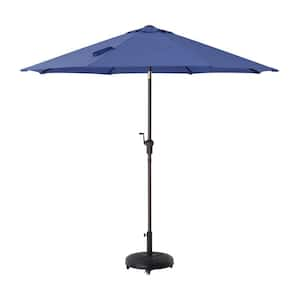
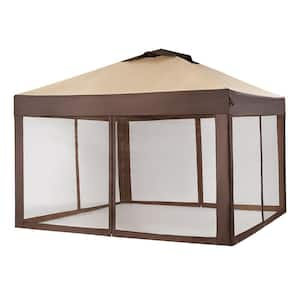
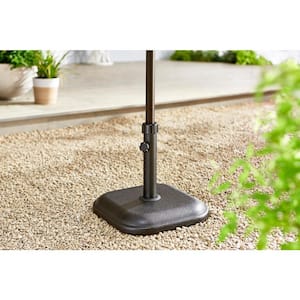
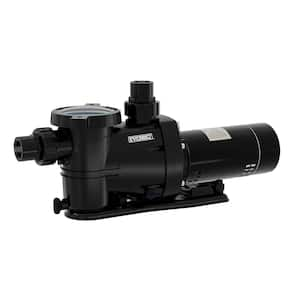
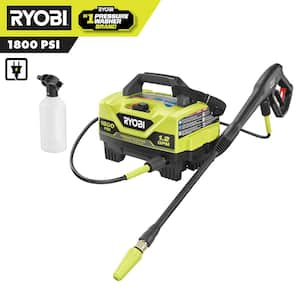
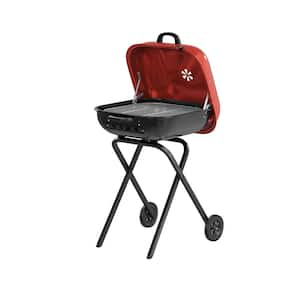
)
)
;Resize=(300,300))
)
)
/2023_P2_Rain_Barrels_Product%20Image%20(square).jpg?im=Resize=(300,300))
)
;Resize=(300,300))
)
;Resize=(300,300))
;Resize=(300,300))
;Resize=(300,300))
)
;Resize=(300,300))
/12_SOIL_B_0420_Social%20media%20(square).jpg?im=Resize=(300,300))
;Resize=(300,300))
;Resize=(300,300))
)
)
)
;Resize=(300,300))
;Resize=(300,300))
;Resize=(300,300))
;Resize=(300,300))
;Resize=(300,300))
)
;Resize=(300,300))
/18Patio_Camden_Seagrass_5pcSeating_Planters_302468736_DTL3_L_Social%20media%20(square).jpg?im=Resize=(300,300))
;Resize=(300,300))
;Resize=(300,300))
;Resize=(300,300))
;Resize=(300,300))
;Resize=(300,300))
)
)
)
.jpeg?im=Crop,rect=(363.69230769230774,1.2307692307692308,958.7692307692308,958.7692307692308);Resize=(300,300))
;Resize=(300,300))
;Resize=(300,300))
;Resize=(300,300))
)
)
;Resize=(300,300))
;Resize=(300,300))
;Resize=(300,300))
)
;Resize=(300,300))
)
)
)
)
;Resize=(300,300))
;Resize=(300,300))
)
;Resize=(300,300))
)
)
/Capello_Spring_Mum_10in_Social%20media%20(square).jpg?im=Resize=(300,300))
;Resize=(300,300))
)
)
;Resize=(300,300))
;Resize=(300,300))
)
)
)
)
)
;Resize=(300,300))
;Resize=(300,300))
;Resize=(300,300))











































